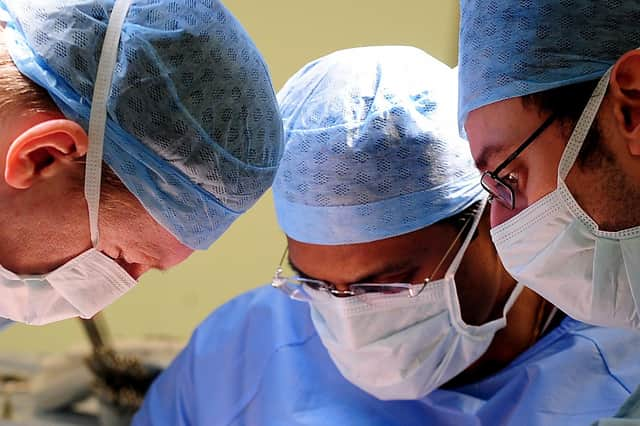Hull and East Yorkshire Hospitals Trust staff miss one in 20 working days as absence rates soar, NHS Digital figures show


The Royal College of Nursing said overstretched workers are at breaking point, with many experienced nurses leaving the profession, while the British Medical Association has called on the Government to “focus on the protection and wellbeing” of the NHS workforce.
NHS Digital figures show 4.44% of the available full-time equivalent working days for staff in the Hull University Teaching Hospitals NHS Trust were classed as absent.
Advertisement
Hide AdAdvertisement
Hide AdFurther figures, also from NHS Digital, show that 4.48% of nurses and health visitors, 1.29% of doctors and 6.15% of midwives were absent.
The figures also show that absenses at York and Scarborough Teaching Hospitals Trust reached its highest point since April 2020 in December 2021.
They show 6.17% of the available full-time equivalent working days were classified as absent in the York and Scarborough Teaching Hospitals NHS Foundation Trust – the highest since April 2020, shortly after the pandemic reached England.
Further figures, also from NHS Digital, show that 6.42% of nurses and health visitors, 2.17% of doctors and 6.55% of midwives were absent.
Advertisement
Hide AdAdvertisement
Hide AdAcross England, NHS staff absences soared to 6.17%, the second-highest mark since records began in 2009 and only marginally behind April 2020 (6.2%).
Anxiety, stress, depression and other mental health reasons were the primary factor, accounting for 23.7% of all staff absences.
They were followed by coughs and colds at 12.7% and infectious diseases at 9.5%.
RCN England Director Patricia Marquis said nursing staff have been pushed to breaking point and deserve better treatment.
Advertisement
Hide AdAdvertisement
Hide Ad“These services cannot afford to lose loyal, hard-working professionals to avoidable illnesses on top of tens of thousands of nursing vacancies,” said Ms Marquis.
The Department for Health and Social Care said it is supporting the health and wellbeing of NHS staff by providing targeted psychological support and treatment, occupational health sessions, and investment in “wellbeing conversations”.
“We have record numbers of staff working in the NHS, including over 4,200 more doctors and over 12,100 more nurses compared to January 2022,” a spokesperson said.
The DHSC established the People Recovery Task Force as part of the Elective Recovery programme and invested £37 million in 2021-22 in 40 mental health hubs across the country.
The NHS will also develop a long-term workforce strategy, the spokesperson added.